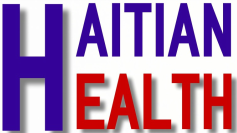|
In times past, obesity was oftentimes synonymous with well-being and riches. However, decades of research revealed to us the detrimental impacts of this health condition on individuals and society. Following the dramatic changes in food production and population migration, this heath condition has become more widespread affecting all levels of society in the U.S. and many other countries in the world. In the northeast region of the U.S., a group of recent immigrant women were interviewed on some of the socio-ecological determinants of obesity [1]. These women, speaking Haitian Creole (n = 11), Spanish (n = 11) and Portuguese (n = 3) were mothers who have been living for only 3-12 years in the U.S. In the focus group sessions, these immigrant women shared their opinions on these following topics:
Food Quality: They estimated the foods from their own country, which they sometimes used to grow, to be minimally processed, have fewer chemicals, and contain fewer preservatives. However, the foods sold/purchased in the U.S. were considered more "diverse", "hygienic" and "safer" [1]. Food Access: Meal preparation in the U.S. was a major obstacle due to lack of time, erratic work hours, and non-available social support for child care. Consequently, they resorted to “eating more convenient and fast foods” [1]. Physical Activity: Engagement for these women and their children was an issue particularly during winter time. Sleep Quality and Quantity: Affected by high levels of stress, constant changes in work schedules, and unavailable family and social support. Stress: Was due to the nature of their work, “financial obligations”, and “school-related activities” [1]. “School-related activities” were particularly a major concern for all Haitian mothers interviewed. They felt inadequately prepared to get involved in the educational upbringing of their children here in the U.S. because of the language barriers and the many requirements from these schools for parents. Additionally, for these Haitian women, their sleep patterns were more adequate in Haiti as they could avail themselves of the opportunity to reach out for assistance in times of need within their social support network. Considering that immigrants will comprise 25% of the U.S. population at the end of the next three decades [1], the increased likelihood of obesity among U.S. immigrants [2, 3], and the continued high burden of obesity on society [4], theses perceptions should inform the strategies used to promote healthier behaviors among immigrants in the U.S. - Empowering Mothers. References 1. Tovar, A., Must, A., Metayer, N., Gute, D. M., Pirie, A., Hyatt, R. R., & Economos, C. D. (2013). Immigrating to the US: What Brazilian, Latin American and Haitian women have to say about changes to their lifestyle that may be associated with obesity. Journal of Immigrant and Minority Health, 15(2), 357-364. doi: 10.1007/s10903-012-9665-8 2. Delavari, M., Sønderlund, A. L., Swinburn, B., Mellor, D., & Renzaho, A. (2013). Acculturation and obesity among migrant populations in high income countries – A systematic review. BMC Public Health, 13(1), 458. doi: 10.1186/1471-2458-13-458 3. Mehta, N. K., Elo, I. T., Ford, N. D., & Siegel, K. R. (2015). Obesity among US-and foreign-born blacks by region of birth. American Journal of Preventive Medicine, 49(2), 269-273. doi: 10.1016/j.amepre.2015.02.014 4. Uzogara, S. G. (2017). Obesity epidemic, medical and quality of life consequences: A review. International Journal of Public Health Research, 5(1), 1. Retrieved from www.openscienceonline.com/journal/archive2?journalId=718&paperId=3643
0 Comments
Leave a Reply. |
Mickelder Kercy, M.D. M.S.I learned about the art and science of medicine and was introduced to the community and population-based aspects of public health at the Université Notre Dame d'Haiti. My early practical interventions in the field of public health during medical residency in Haiti fostered my interest in pursuing additional academic training in public health. At Columbia University in the City of New York, I specialized in Public Health with a minor focus on Community Health Education. My special interest is in non-communicable chronic diseases, and the social-ecological approach to health education and promotion in secular and faith-based communities. Archives
October 2017
Categories
All
To subscribe to our blog and receive notifications of new posts by email
|



 RSS Feed
RSS Feed
